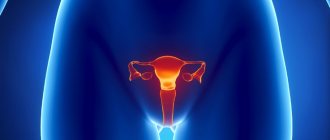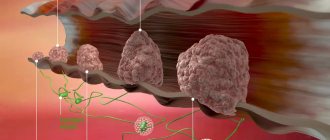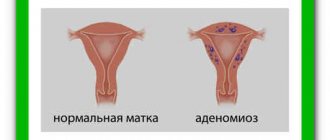After the end of the remission period, the cancer may return—cancer recurrence. No substantiated reasons have been identified that contribute to the re-emergence of this insidious disease. Most likely, malignant cells remain in the human body that were not completely destroyed during treatment. For a certain period of time, they may remain inactive, but then they begin to quickly develop and form a new cancerous tumor.
What is relapse
The term is used in many areas of life. It represents the presence of pathology during the occurrence of recurrent diseases. Their causes have not been completely eliminated. As a result, dangerous cells develop anew.
Cancer recurrence is a common event in oncology. In addition to it, it occurs in other areas of disease. Chronic diseases recur. Some titles have included this word in their composition due to its constant presence.
The concept of "relapse"
Oncological relapse is the recurrence of cancer after initial removal. Previously, the term was used to refer to infections. It meant the return of pathology. The cause was said to be a residual small cell irritant in the body. This is how it was distinguished from reinfection, when the disease came again, but developed from the beginning.
Relapse is divided into complete, selective and with barely noticeable signs of a tumor. Arises regarding oncology completely or a tumor. The remaining particles of metastases spark a new focus of the disease. They spread throughout the body again. This also occurs in the process of papillary thyroid cancer. The walls of the soft palate suffer.
Some time after the tumor is removed, metastasis appears. It settles in the territory of the neoplasm, in the lymph nodes or organs. The male half of the population is susceptible to the appearance of neoplasms of the prostate gland. Recovery after radical prostatectomy takes a long time. Biochemical cancer recurrence haunts many patients. A neoplasm in the lumbar region provokes sharp shooting pains in the spine. No one can guarantee a complete recovery. The risk of relapse remains high.
Observation by a doctor will help identify the tumor at an early stage. He will calculate the probability and risks and explain to the patient. The reasons for its occurrence are known - it is influenced by the activation of malignant cells. Explore existing factors for relapse. The necessary actions can be taken.
Reasons for relapse
To cure oncology, surgery is required. Treatment and chemotherapy courses do not guarantee protection against relapse. There are many factors that influence return. The main reasons are:
- Incomplete recovery. The course of therapy is not completed, not completed.
- The pathology worsens in cycles.
- Increased TSH.
- Weak immunity.
- Try to detect symptoms early.
- Failure to follow doctor's advice.
Hereditary diseases and lifestyle are extremely important. A clear regimen and proper nutrition are strictly observed after treatment and procedures. You should not expose yourself to stress and destructive worries. Doctors also name other factors that cause relapse.
In patients of a young age group, the likelihood of recurrent disease is higher. Moreover, after irradiation they undergo chemotherapy courses. As a person ages, the risk of developing cancer increases. This also includes people unfamiliar with oncology. Radiation is dangerous for children. Their body is different from that of an adult.
Ineffective treatments promote the activation of new cancer cells. Heavy physical exertion and injuries in the area of the operation are also dangerous. Negative habits - alcohol, drugs, smoking - have a bad effect on the outcome of treatment.
Chronic diseases, infections, and disruption of the endocrine system fall into the risk zone. At the initial stage, it is difficult to notice a relapse. There are no symptoms. The main manifestation is the formation of nodular neoplasms on tissues. Consult your doctor regularly and undergo further examination. The risk of complications will significantly decrease.
Features of treatment
Depending on the characteristics and type of cancer, specialists select individual therapy, which may include: surgery, radiation or chemotherapy, immunotherapy and other methods. Sometimes cryodestruction, radiofrequency ablation and hormonal injections into the body can be used. A method of palliative treatment and the formation of obstacles to further spread of the tumor is also required in certain cases.
Radiation is used together with the main treatment, as well as separately, if surgical intervention is not possible.
But to stop the growth of cancer cells during a second relapse, radiation therapy and chemotherapy are often used. Radiation treatment is used in the following cases:
- If it is impossible to remove the tumor using surgery.
- When a large number of metastases are localized in the body.
- As an effective addition to the main treatment.
- To improve the quality of life of a person with cancer or reduce negative symptoms.
Probability and Forecast
Recurrence depends on the location of the cancer. A skin tumor that is in the first stage excludes recurrence of the disease. The probability is low. The mammary gland is susceptible to the renewal of malignant cells.
The kidneys and colon tissue are at risk. After nephrectomy, renal failure develops. And rectal recovery takes time. Stomach cancer will greatly debilitate a person.
The stage of the disease is important. In the early stages, the cancer cell will not have time to penetrate deep into the epidermis. They will not expand through the lymph nodes and blood vessels. In this case, a person is able to get rid of malignant cells without relapse.
The shape and structure of the neoplasm influence development. Shallow tumors are not susceptible to re-formation. After removal of deep cancer, the risk of recurrence remains high. Combination therapy is considered an effective treatment. The likelihood of a cure is high.
Determining the exact outcome of oncology is difficult. It is necessary to rely on the characteristics of neoplasms. Age category and general condition of the body are taken into account when calculating risks. Having chronic diseases will only increase them.
conclusions
If you don’t know where to go for treatment of recurrent cancer of the uterus, ovaries, intestines, prostate and breast, then we recommend you an oncologist. The clinic employs highly qualified doctors with extensive experience. Diagnosis and treatment are carried out using modern equipment. We are located in the Central Administrative District of Moscow at the address: 2nd Tverskoy-Yamskaya per., 10. You can make an appointment with specialists by calling +7 (495) 775-73-60 or through a special form posted on the website.
Your life is in your hands!
Call now:
+7
Recurrence of ovarian cancer
Recurrence of ovarian cancer is common. Patients are susceptible to recurrence of the disease after successful treatment. The repetition is severe and life-threatening. It is difficult to treat.
Patients facing cancer may have doubts about recovery. Statistics show that patients achieve a complete cure. Correct and timely treatment increases the chances.
Symptoms of ovarian cancer
Symptoms of cancer recurrence are possible after treatment. If detected, immediate treatment is required. The cervix is at risk. Do not delay the disease until an advanced stage. Help your doctor spot it early. The return of the tumor is accompanied by symptoms:
- Constant feeling of malaise.
- Pain and heaviness in the pelvic area.
- Fatigue.
- Disruption of the menstrual cycle.
- Existing neuroblastoma of the retroperitoneum.
- Difficulty urinating.
- The occurrence of corresponding diseases.
Symptoms of relapse may appear years after treatment. The therapy and procedures completed require careful attention to health. Malignant cells can spread to the walls of the fallopian tube. Patients are advised to adhere to the regimen. Do not create favorable conditions for cancer.
25% of patients do not notice the presence of cancer symptoms at an early stage. The disease starts, and serious treatment measures are applied. Negative risks are growing. Check with your doctor regularly and undergo examinations. The risk cannot be allowed to happen again!
Treatment of recurrent tumor
To prescribe treatment, the doctor studies the nuances of the disease and determines the time elapsed from the onset of symptoms of the tumor to the recurrence of oncology. The group of drugs does not change when the course is completed 5 months ago. A longer period will increase the likelihood of recovery. There will be a chance for therapy to be effective.
Patients with multiple metastases are prescribed serious procedures. They will help patients gain extra days of life. Some scientists believe that treatment will accelerate the proliferation of cancer cells. The oncological process will intensify. For each specific case, medications and appropriate measures are selected individually. Patients are prescribed endometriosis.
Chemotherapy does not always bring positive results. The malignant set of cells adapts to the procedure and develops resistance. The doctor is assigned the task of improving the patient's life and monitoring the symptoms of the disease. Recurrence of cancer cells cannot be cured.
New drugs are created every year. They effectively stop different stages of cancer and fight recurrences. They are used for complex treatment. The survival rate of cancer patients is increasing.
Recurrence of lung cancer
In lung cancer, cells of the bronchial system are affected. Its relapse is detected 2-3 years from the moment of diagnosis. Patients lose weight and cough up blood. Treatment is prescribed based on the person’s words and examination tests.
Patients undergo courses of chemotherapy and radiotherapy. Combination treatment is used. Relapse occurs in 20-40%. The most dangerous period is 10 months from the end of treatment. The cure rate is 39%.
Symptoms of lung cancer
Lung cancer is difficult to detect. There is a risk of missing the initial stage and confusing it with a cold. To be completely sure, the doctor needs to identify groups of signs that correspond to the disease. The following symptoms are identified:
- Cough with blood discharge.
- Dyspnea.
- Hard breath.
- Enlarged lymph nodes.
- General weakness and apathy.
- Fast fatiguability.
Patients exhibit general signs of cancer. Patients lose weight and their appetite goes away. The person is in a depressed mood. The fire in the eyes goes out, all the energy goes away.
The examination results reveal anemia. The nervous system undergoes changes. In case of relapse, symptoms depend on the location of the metastases. They affect the condition of the body and cause some deviations that are noticed by the attending physician.
Tumor treatment
For treatment, chemotherapy and radiotherapy are prescribed, and surgery is performed. Complex treatment gives the best effect. 50% of patients experience a relapse. In other cases, the operation is not performed. High risk of injury. After radiation therapy, malignant cells adapt to the treatment methods.
Pneumonectomy is used to remove recurrent cancer. Removal of ribs and cutting of chest tissue is allowed. Before surgery, the patient undergoes radiation and chemotherapy. Drugs are prescribed individually to each patient. In case of purulent manifestations, the focus of pus is removed.
If surgery is prohibited, palliative radiation therapy is used. It does not affect the patient's life expectancy. The patient's general well-being improves. To treat regional relapses of lung cancer, chemoradiotherapy is necessary. If necessary, the procedure is performed in the form of punctures of the lungs.
The prognosis for new tumor development is disappointing. Patients with malignant cells in the lungs live 2.5 years after cancer is diagnosed. On average, patients who have undergone therapy die after a relapse 14 months later. The probability of living for a year is 60%, and 2 years – 30%.
Why is relapse dangerous?
Like distant metastases, tumor recurrence is much more difficult to treat. Upon returning, the cancer changes and acquires the following properties:
- High malignancy;
- Aggressiveness towards the host organism;
- Significantly lower sensitivity to chemotherapy;
- Poor prognosis (based on statistics).
It is important to distinguish between true and false relapse: in the latter case, a new primary tumor arises in the remaining part of the organ many years after the operation.
Recurrence of breast cancer
Breast cancer is highly treatable. The risk of death is low. Relapse can develop even after mastectomy. Cancer comes back after removal.
In the first 4 years, signs of the disease do not appear in 60% of women. With a single operation, the likelihood of breast cancer occurring in the first 2 years after treatment is high. The absence of signs does not guarantee complete elimination of cancer cells. The tumor may return after a long time.
Symptoms of breast cancer
A patient who has undergone treatment should be aware of the signs of relapse. This will help you see a doctor in time. Symptoms appear after different periods of time. The patient will have time to be removed from the register.
Breast fibroadenoma in a man
After a lumpectomy, the affected cells may move deeper into the gland tissue. The scar left from a mastectomy is an ideal place for a tumor to arise. Metastasis spreads to the lymph nodes. Seals appear in the neck and collarbone area. Many organs are at risk. Relapse is determined by symptoms:
- Formation of “bumps” in the gland.
- Redness of the skin on the chest.
- Discharge.
- The appearance of a “bump” in the scar area.
- Thickening in the postoperative scar.
- Painful sensations in the bones, back.
- Continuous cough.
- Hard breath.
- Cramps.
The doctor will guide you and prescribe procedures. The initial examination will provide a lot of information. Clinical trial data will help inform his work. Mammography results will be needed to suspect recurrence. If necessary, additional tests are prescribed.
Cancer treatment
The choice of treatment depends on factors. The size of the tumor, the patient’s well-being, and the goal of treatment are important. Local recurrence requires surgical intervention. As a result, the mammary gland is removed. After a mastectomy, malignant cells are excised along with some unaffected tissue. The same applies to axillary lymph nodes.
Irradiation is carried out for the first time. A repeat procedure is not required. The patient is undergoing chemotherapy and hormonal therapy. Combined treatment is prescribed. It includes radiation, hormonal drugs, removal of the tumor and lymph nodes.
Surgery is not needed to remove deep metastases. The tumor affects several organs. The doctor sends the patient to courses of chemotherapy, radiation or hormone therapy. The result is an increase in the patient's life expectancy. Efficiency in power and people:
- Balanced diet.
- Rest.
- Support from friends and family.
- Quick response to deterioration of condition.
Your doctor may recommend hospice care. The patient's life will become more convenient. Medical care is provided. Services are provided by specialists.
How to prevent relapse
To protect against cancer recurrence, doctors recommend following certain recommendations. Visit your oncologist regularly and get examined twice a year. The doctor should check the condition of the lymph nodes and conduct research. Remember - early detection of tumors will save your life.
Watch your lifestyle. Giving up bad habits will help prevent relapse: smoking and alcohol are prohibited. Prevention consists of drawing up a new menu for every day. Include a proper and healthy diet. Your body needs vitamins and nutrients.
Talk to your doctor about dietary supplements. Follow his recommendations. Good physical activity and exercise will benefit you. Lead an active lifestyle, but at a moderate pace.
Work and rest should alternate. Cancer relapses are severe and fleeting. For prevention, follow the advice of doctors. The presence of fear for your life is normal. A psychologist will help you get rid of obsessive thoughts.











